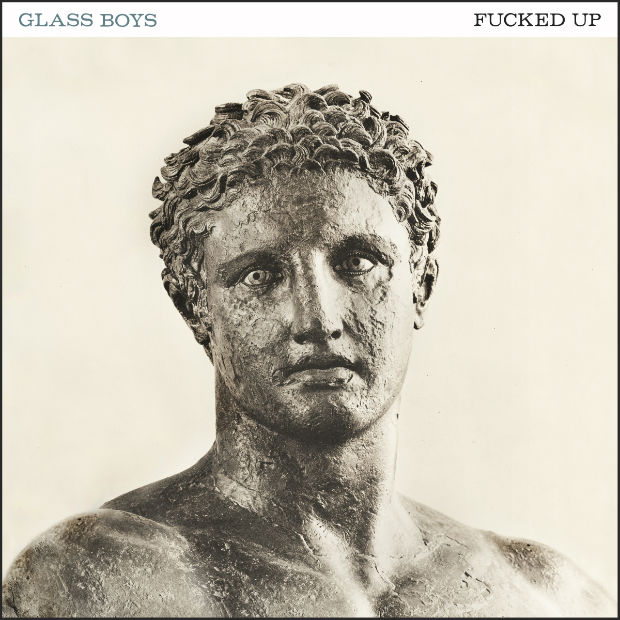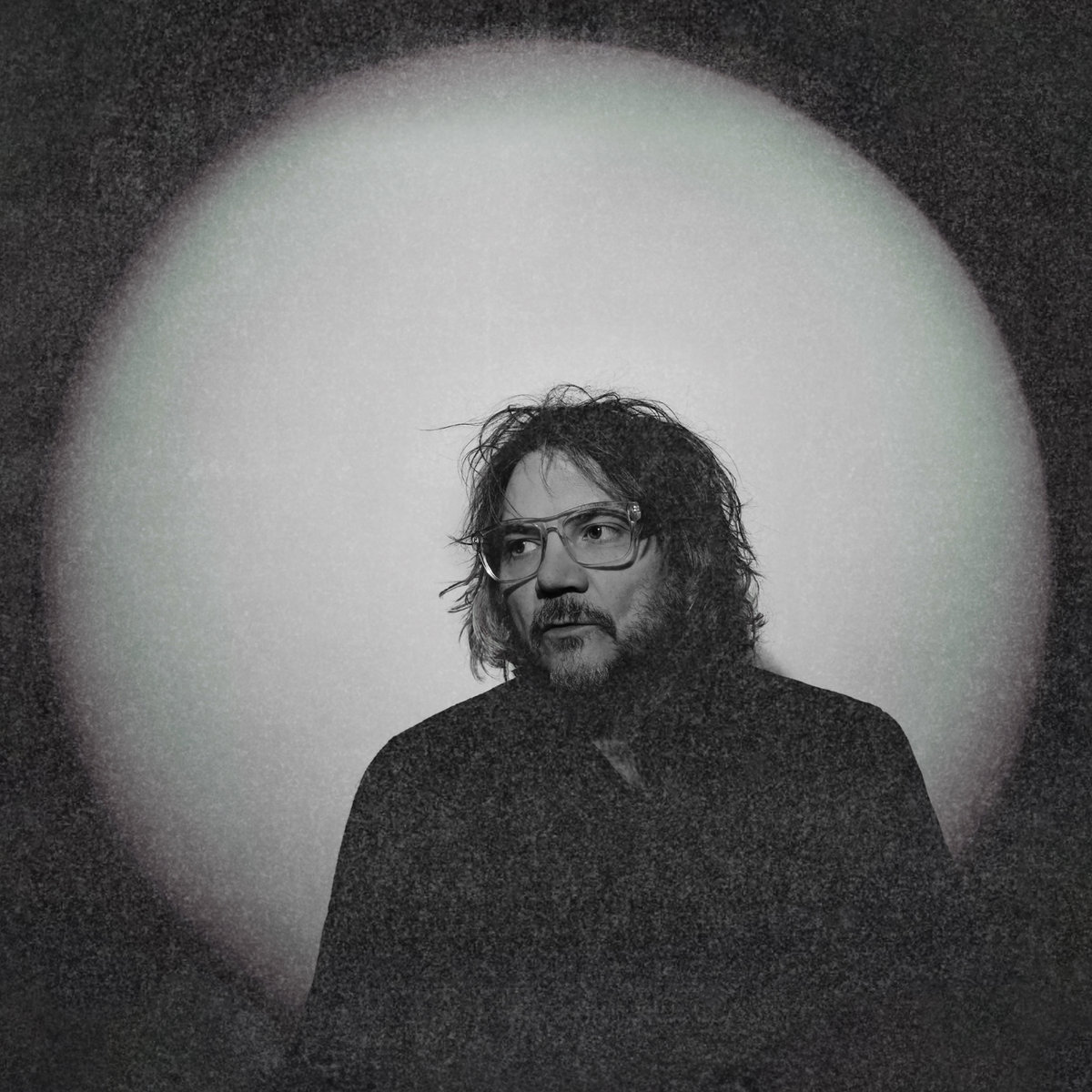According to legend, punk rock began as a reaction against classic-rock excess. But every revolution calcifies into tradition eventually, and every rebellious kid has to grapple with growing up. On top of that inexorable life cycle, we're living in an era of synthesis and quasi-universalism, when most of the taboos that helped keep music scenes segregated have become as archaic as the rotary phone. As a result, these days the lines between classic rock and punk are blurrier than they've ever been.
No band is more conscious of that reality -- or more representative of it -- than Fucked Up. When they first came on my radar, they were shadowy underground heroes with a behemoth frontman named Pink Eyes known for his violently self-destructive outbursts. Only the punk kids who existed in an entirely different sphere than my internet indie rock universe seemed to know about this band. To borrow the title of their 2006 debut album, they existed in a Hidden World, one that was defiantly underground, far away from the music press and the festival circuit. Eight years later, the situation is almost entirely inverted. Fucked Up are rock stars now -- or at least Damian Abraham, the man once known only as Pink Eyes, is a rock star. He's also a TV personality and a family man. His band is three albums deep into a deal with Matador, an independent label so massive and influential that its reach rivals the majors. Upon signing that deal, they released a concept album (2008's The Chemistry Of Common Life) followed by a rock opera (2011's David Comes To Life), elaborate gestures usually associated with the sort of bloated classic-rock dinosaurs punk was ostensibly designed to wipe off the face of the earth. If the underground zealots that used to pack Fucked Up shows are still in the fold, they're joined by a vast subset of people who've never published a zine or seen a band play in a basement. If not for the difficulties associated with marketing a band called Fucked Up, they'd probably be even more massive -- subsumed deeper into the music industry, and therefore even farther from the DIY scene of their youth.
Existing on that plane is quite the mindfuck for a band that arose from a staunchly independent underground scene where ideals are supposed to be more valuable than dollars and living comfortably is a sign of weakness. Glass Boys, Fucked Up's fourth album and most personal by a wide margin, makes that much abundantly clear. The members of Fucked Up want to stay true to where they came from, and they wonder if their younger selves would scoff at the big-budget production they've become. But they also realize that they chose this path, and in a lot of ways they love the material success and widespread adulation that comes with being monsters of rock. That raging internal friction is what sparks all 10 songs on Glass Boys. As Tom Breihan put it in his fantastic Fucked Up profile, "Abraham is writing lyrics that deal directly with his day-to-day concerns -- the concerns of an aging dad who never expected to reach his level of semi-fame and who's worried that he's fucking up his old scene simply by existing in public, but who's just as worried about losing that acceptance." On "The Art Of Patrons," Abraham himself paints the stakes in even more extreme terminology: "What was sacrosanct, now the sacred is profane/ We yearn for thanks but deserve all the blame/ A simple piece of stagecraft, a tawdry parlor trick/ We traded our moral high ground so they would sing along/ But is it so bad? Is it as dark as it seems?/ To trade a little purity to prolong the dream?/ One by one we will find a way to let each and every one down." That song features guest vocals by Gord Downie of Canadian superstars the Tragically Hip, one of several guests who contribute to Glass Boys' clamor including J Mascis and Alexisonfire frontman George Pettit. Of those three, Downie's inclusion makes the least sense stylistically, but his band name feels like a pointed in-joke on an album about coming to terms with your own rock-stardom.
Abraham is right to conclude that trying to please everyone is a good way to please no one, but Glass Boys is anything but a letdown. They've pulled off a marvelous high-wire act here in more ways than one, and it might be the best thing they've ever done. Glass Boys is Fucked Up's most approachable album ever, but it's also the truest to their punk-rock roots, dealing with real people's real situations in relatively streamlined bursts rather than disappearing into prog-rock's complex mythologies and song structures. Even more impressively, subject matter that has turned lesser punk albums into impenetrable documents of insular scene politics instead becomes fodder for exhilarating chronicles of personal turmoil. Although Abraham and guitarist Mike Haliechuk split the lyrical duties, the album is singleminded in its handwringing, each song grappling with the consequences of fame and fortune to an extent that you almost wonder if these guys have been hanging out with fellow Toronto resident Drake. But unlike Drake, these songs are not steeped in smug self-pity. Fucked Up puts themselves on trial here, grilling themselves from both directions even as they acknowledge they're playing a game they can't win. The triumph of Glass Boys is that it turns all that ambivalence into an explosive.
Much of that combustibility stems from music that prizes power over finesse without giving up its harmonic richness. Trail Of Dead skirted such territory on their seminal Source Tags And Codes, but their art-rock proclivities and emo whines rendered their songs a bit flimsy for world domination, and they tended to keep their chaotic and melodic impulses somewhat separate, toggling between mosh-pit ragers and post-hardcore power ballads without completely bridging the two sounds. In contrast, every song on Glass Boys is a wave of mutilation and musicality. Abraham's growling rasp provides so much searing edge that the rest of the band can afford to lace its earthquake-triggering bombast with abundant melody without sacrificing ferocity in the slightest. "Sun Glass" even begins with an acoustic guitar, but it's more of a fake-out before the divine hammer drops yet again. They're all such dense, intense songs, each of them haunted by guilt, fear, and regret. Yet rather than overwhelm, they uplift.
If punk rock is classic rock now, Fucked Up's closest parallel is the Who, a band that started out pushing the limits of rock 'n' roll's fury and quickly moved on to pushing the boundaries of its form. Like Fucked Up, they evolved from standalone songs to concept albums to outright rock opera. Like Fucked Up, they were well aware of the complications of growing up, even from the beginning. And like Fucked Up, they devoted an entire album to the concept of selling out. But if Glass Boys parallels any album in the Who's discography, it's not The Who Sell Out so much as Who's Next, the one that dispensed with the conceptual framework and instead basically invented arena rock. Almost every song on Glass Boys clocks in under four minutes, and most of them have identifiable verses and choruses. What stands out even more than the unmissable themes and recurring musical motif (if high-register guitar arpeggios count as a motif) is the way these songs catapult hardcore into stadium status. Their anthem game has never been stronger.
Paradoxically, the anthems in question are about the fear of ascending to that level, about what it means to be a punk band inhabiting a classic-rock space. It's a situation so few people will ever face, but Fucked Up succeed here in the way most great creative activity succeeds: by finding the universal in the personal. Who among us has never thought, "The way I make my living is driving me insane" -- especially those of us lucky enough to be working in our chosen fields? Who hasn't worried that they're letting down their 15-year-old selves? Which of us hasn't struggled to figure out who we are and where our value comes from? On the album-closing title track, Haliechuk offers a thesis statement -- "I'm afraid to grow up/ And fuck my life up" -- and although he ends the album by declaring that he's ready to be erased, Glass Boys doesn't present a band that is ready to disappear quietly into the ether. This music is vibrant, physical, and overflowing with life. Haliechuk is right in a sense; eventually history will probably forget Fucked Up along with the rest of us. But they haven't withered to a whisper yet, and it's never been more of a pleasure to hear them roar.
Glass Boys is out 6/3 via Matador. Stream it here.
[videoembed size="full_width" alignment="center"][/videoembed]
[videoembed size="full_width" alignment="center"][/videoembed]
[videoembed size="full_width" alignment="center"][/videoembed]






